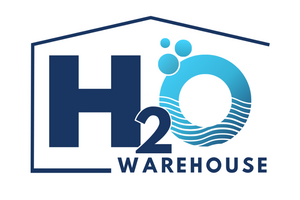Greywater Recycling for Irrigation Systems
Greywater Recycling for Irrigation Systems
Greywater recycling is an innovative and eco-friendly approach to repurposing household water for irrigation purposes. This method not only reduces water waste but also contributes significantly to resource conservation, making it an essential practice in sustainable living.
Benefits of Greywater Recycling
1. Water Savings: Greywater recycling reduces dependency on municipal water supplies by reusing water from everyday household activities such as bathing, washing dishes, and laundry. This is particularly valuable in regions prone to water shortages or droughts.
2. Cost-Effective: By repurposing water that would otherwise go to waste, households can significantly lower their water bills over time. The initial investment in a greywater system often pays off through consistent savings.
3. Environmentally Friendly: Recycling greywater minimises wastewater discharge into municipal treatment systems, reducing the strain on local infrastructure and lowering the environmental footprint. This practice also prevents untreated wastewater from polluting natural ecosystems.
4. Garden Health: Greywater provides plants with essential nutrients such as phosphorus and nitrogen, promoting healthier growth. When used correctly, it helps maintain a lush and thriving garden.
How to Recycle Greywater
1. Install a Greywater Diverter: A greywater diverter redirects water from household sources such as sinks, showers, and washing machines to an irrigation system. This is the first step in creating a seamless recycling process.
2. Filter the Water: Filtering is crucial to remove impurities and ensure the greywater is safe for use in your garden. Filters range from simple mesh screens to more advanced sediment and biological filtration systems, depending on your requirements.
3. Connect to Irrigation Systems: Once filtered, the greywater is distributed through irrigation systems such as drip or subsurface methods. These systems ensure efficient water delivery while preventing surface pooling, which could lead to odours or attract pests.
4. Regular Maintenance: To maintain the efficiency of your greywater system, regular cleaning and maintenance of filters, pipes, and diverters are essential. This prevents blockages and ensures the long-term sustainability of the system.
Safety Considerations
While greywater recycling is highly beneficial, certain safety measures must be observed:
-
Avoid Toxic Substances: Ensure the water being recycled does not contain harmful chemicals such as bleach or strong detergents, which could damage plants and soil.
-
Use for Non-Edible Plants: Greywater is best suited for ornamental plants, shrubs, and lawns. If used for edible crops, ensure it does not come into contact with the edible parts of the plant.
-
Follow Local Regulations: Check local guidelines and regulations regarding greywater use to ensure compliance and safety.
Conclusion
Greywater recycling is a practical and impactful way to reduce water waste while promoting sustainable gardening practices. By investing in a reliable greywater system and adhering to proper maintenance protocols, households can significantly contribute to water conservation efforts and environmental protection. Whether for cost savings, environmental benefits, or simply the joy of nurturing a flourishing garden, greywater recycling is a step towards a greener future.
- Choosing a selection results in a full page refresh.

